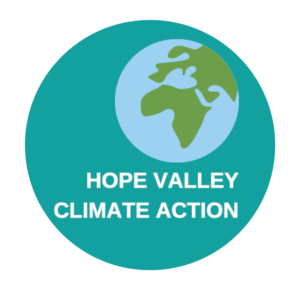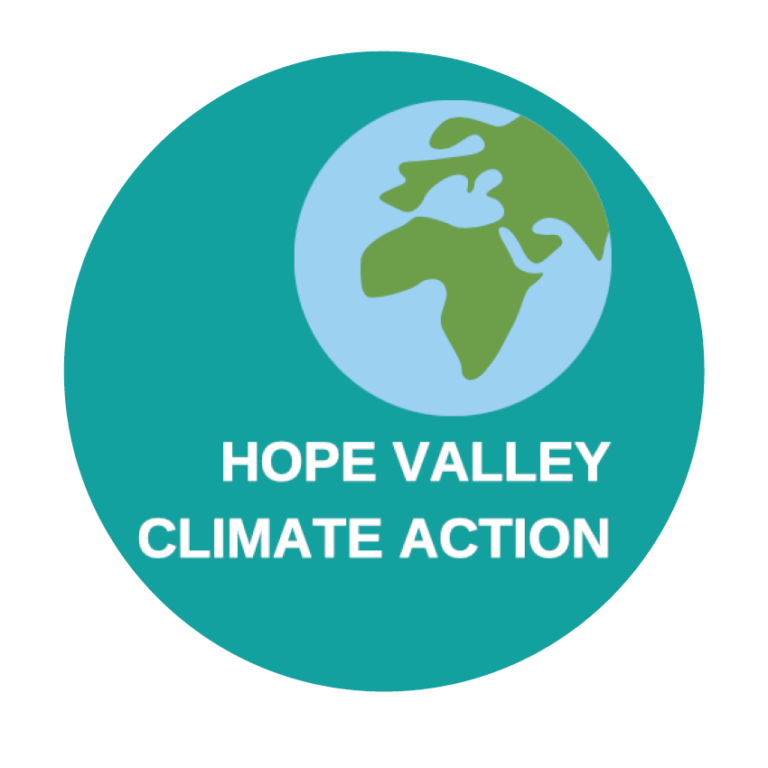Hope Valley Farmers are a group of 45 farmers who share a common interest in conservation and want to pursue the benefits of joined-up thinking. Their farms cover a range of habitats: moorland, native woodland, species-rich grassland, riparian and rivers, and scrub. Hope Valley Farmers have short-term funding to arrange the delivery of presentations or visit experts, to further their understanding of a particular topic and learn about the practical elements. These have been varied in nature thus far, from Mary Colwell about curlews to Professor Ian Rotherham on rewilding. They have visited farmers in Betws-y-Coed who are doing work on moorland in order to sell carbon credits. Huge support has been received from Severn Trent (to help deliver improvements in soil health and water quality) and the Woodland Trust (with large scale tree-planting). Recently, members of Hope Valley Climate Action (HVCA) virtually met members of Hope Valley Farmers and learnt about the type of farm they have in the Hope Valley, and the environmental and conservation work they have been doing.

We heard from a farm of 120 acres of grassland which aims to maintain a parkland effect with individual oak, beech and rowan in enclosures. Wildlife corridors built of hedges link the woodland and copses, with a healthy brown hare population benefiting from this habitat. Kestrels have successfully bred in nesting boxes this year. The sheep are of high welfare marketed locally, with no air miles. Impressive infrastructure has been installed at another farm to deliver improvements in multiple areas. Slurry storage underneath the cattle shed has resulted in 60% less use of ammonium nitrate, representing a major decrease in reliance on artificial fertilizers. When the crops need fertilising, the slurry is injected into the ground instead of being sprayed over the surface. Injecting slurry, rather than spraying, reduces loss to the atmosphere and run-off. We heard from a small-holder who mostly farms sheep on their 50 acres. They haven’t used fertilizer for at least 15 years – providing a great example of a low-input farm. They have planted 450 trees to date, consisting of a mix of nine tree species.
Now, in a world where we are pushing for climate change to be at the top of everybody’s agenda, you may be wondering why HVCA is seeking to work with an industry highlighted as a key contributor to the very thing we are fighting against. This provides me with an opportunity to bring everybody on board the journey I have started towards a greater understanding of the role of farming in today’s society. I tend to not get bogged down in statistics, because they can lack transparency in terms of what the numbers are based on. What I am concerned with is whether farming is intensive or sustainable. Intensive farming aims to maximise yield, achieved by methods such as a heavy use of pesticides and chemical fertilizers. Sustainable farming is the balance between producing good quality food (which is good for our health), protecting the environment and conserving biodiversity. The latter is not easy, for you earn more if you farm intensively than if you farm sustainably. Supermarkets have been a key driver of this, by driving the price of food down into the ground. Sustainable farmers need our support now more than ever. A good place to start is by recognizing that there is a difference between intensive and sustainable farming, and to not tar all farmers with the same brush. Generalising in this way hinders progression in sustainable farming – if nobody recognizes, understands and actively supports sustainable farming, then we shall never progress to the bright future where this is the mainstream model. Furthermore, our local farmers are striving towards this sustainability. I have given examples of the environmental and conservation measures they have already implemented, and their work is ongoing. There will always be ways to improve and we can only look in at our own lifestyles to recognize that. It takes time to overhaul a system, and when you’re doing this within the context of an economy that does not support it, it’s difficult. So, let’s empathize with each other and begin to work together.
If you are interested, feel free to email me at rebeccaclairethomas@gmail.com


